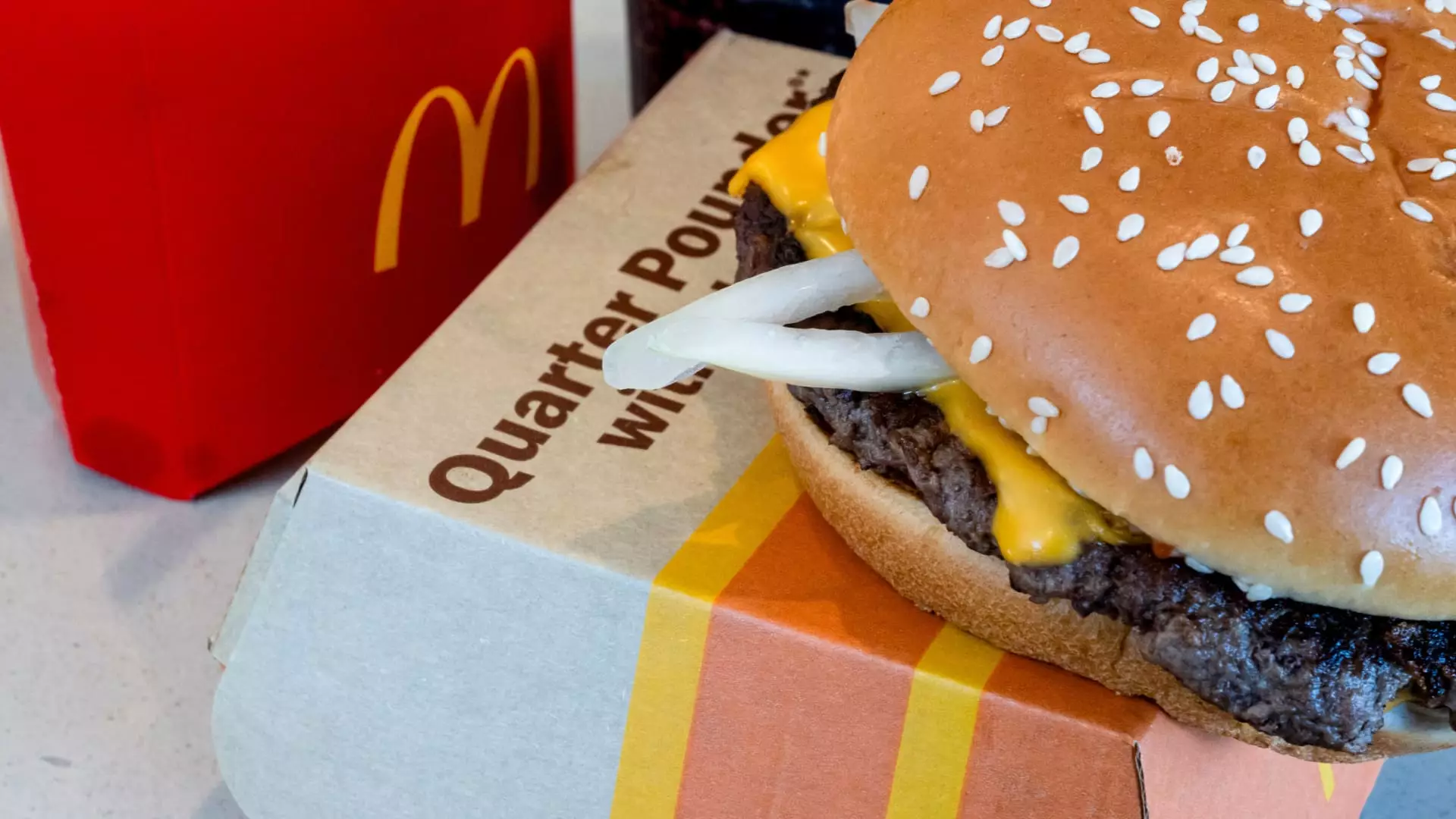The recent E. coli outbreak associated with McDonald’s iconic Quarter Pounder has raised significant public health concerns and ignited discussions around food safety in the fast-food industry. With 75 cases reported across 13 states, along with 22 hospitalizations and a tragic death of an older adult in Colorado, the implications of this outbreak are wide-ranging and warrant scrutiny.
The Centers for Disease Control and Prevention (CDC) has provided critical updates regarding the outbreak, indicating a possible underreporting of cases. While 61 patients detailed their eating habits to the CDC, it was striking that all confirmed infections followed a meal at McDonald’s, particularly highlighting the consumption of beef hamburgers. This raises an important issue about the tracking of foodborne illnesses; often, individuals recover without seeking medical attention, leading to significant gaps in data collection. The ages of those infected, ranging from 13 to 88, emphasize that E. coli affects diverse demographics, thus amplifying the need for heightened vigilance in food safety protocols.
This outbreak puts a spotlight on the fact that many other cases might exist beyond the reported figures. The CDC’s analysis suggested that the real count could soar higher due to the asymptomatic nature of many infections and the typical delay—sometimes weeks—before the discovery of new cases linked to an outbreak. Such an underestimation not only complicates containment efforts but also poses a health hazard to communities at large.
As news of the outbreak emerged, McDonald’s experienced an immediate 2% drop in stock value, which has compounded to a 6% decline since the initial acknowledgment of the outbreak. From a business perspective, the implications are dire, particularly for a company that relies heavily on the Quarter Pounder as a staple menu item. With such a significant portion of revenue tied to this product, McDonald’s faces an uphill battle to maintain consumer trust while managing the health crisis.
The company’s initial response involved removing slivered onions—a suspected source of contamination—from their supply chain in several states. This decision reflects the seriousness of the health threat but also presents operational challenges for McDonald’s, as the ingredient is integral to the Quarter Pounder’s essence. By effectively pulling the product from roughly 20% of its U.S. restaurants, McDonald’s is acting to protect its patrons, but the economic repercussions are undeniably concerning.
Corporate Actions and Consumer Confidence
In their attempt to control the negative fallout from the outbreak, McDonald’s has adopted a cautious approach, indicating that they are following health guidelines closely while reassuring consumers about the safety of their remaining menu items. Nonetheless, skepticism persists in the public realm. History serves as a template for consumer responses surrounding foodborne illnesses; prior outbreaks—most notably related to other fast-food chains—have yielded long-lasting damage to brand reputations.
The uncertainty looms larger as McDonald’s prepares to report its third-quarter earnings—a timeframe that could see investor sentiment shift significantly based on how the company navigates this crisis. Given that the brand has struggled in recent quarters to attract price-sensitive consumers, the outbreak could compound these challenges further, particularly if foot traffic to stores declines due to fears of infection.
Looking Ahead: Lessons for the Fast-Food Industry
The incident presents a broader reflection on the fast-food industry’s vulnerabilities surrounding food safety. It underscores the necessity for strict oversight and transparency, not only to maintain consumer trust but to uphold industry standards. Health agencies are not only examining the slivered onions; they are also investigating the beef patties that form the heart of the Quarter Pounder.
The response to the outbreak by competing brands, with many eliminating onions from their menus as a precaution, illustrates a collective stance among major players in the fast-food sector. While it is essential to manage current crises effectively, it is equally vital for companies to learn from these occurrences to implement stronger safety measures.
As the CDC and other health organizations navigate the complexities of this outbreak, the true test for McDonald’s will be its capacity to reassure the public while effectively addressing the underlying challenges. It remains crucial for the fast-food industry to evolve its standards, ensuring that such incidents do not undermine consumer confidence ultimately.

